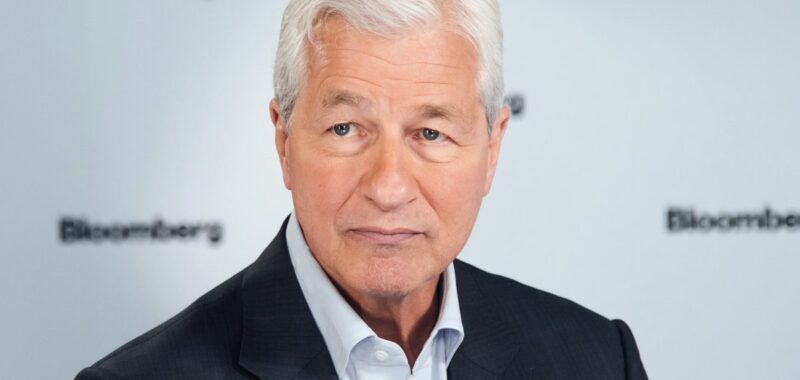
The question of who will take on one of the highest-profile jobs on Wall Street has spiked up the agenda after 68-year-old Dimon announced he would be leaving the CEO role within the next five years.
While Dimon currently holds both the CEO and chairman roles, JPMorgan hasn’t confirmed whether the incoming boss will continue to hold both.
But the team at America’s biggest bank is making clear that they’ve got a plan and are heavily scrutinizing each of the candidates who are in position to take on the role.
Dimon told a conference of pension funds and institutional investors in New York this week that JPMorgan has a bank of “extremely” qualified people to one day take over.
He added, per Reuters, that he and his team think about it a lot and that “we all want to get that exactly right.”
While speculation is still rife about who will permanently lead the bank after Dimon, who has been at the helm since 2006, the CEO has been transparent about who could step into his shoes in the case of an emergency.
Daniel Pinto, JP’s president and COO, was named as the emergency—or “hit by a bus”—pick by Dimon in a CNBC interview last month.
The billionaire banking tycoon reiterated this position this week. According to Reuters, Dimon added that Pinto could “run the bank tomorrow” if needed.
Dimon’s leadership style
Anyone who knows Dimon’s approach to everything from internal management to analyzing the economic terrain will not be surprised by the intense preparation for his succession.
Dimon, who was paid a record $36 million for his work in 2023, says he runs JPMorgan with a military tactic in mind: the ‘OODA loop’ (observe, orient, decide, act—repeat), a strategic process of constant review, analysis, decision-making, and action.
“One cannot overemphasize the importance of observation and a full assessment—the failure to do so leads to some of the greatest mistakes, not only in war but also in business and government,” Dimon added in his 2023 letter to shareholders.
The tactic of preparing for a broad range of outcomes is also employed in JPMorgan’s economic forecasting.
For example, Dimon, unlike some other analysts, remains unconvinced that stagflation will now creep into the American economy.
In May he said: “I’m not saying it’s going to happen, I just give the odds much higher than other people. I look at the amount of fiscal and monetary stimulus that has taken place over the last five years—it has been so extraordinary, how can you tell me it won’t lead to stagflation?”
“It might not. But I, for one, am quite prepared for it.”
Who might be the next JPMorgan CEO?
Dimon surprised analysts earlier this year with the departure from his usual answer when asked about his potential step down from the role as CEO.
Historically, Dimon has always said he’ll move on in “five more years,” but in May, he left spectators gaping when he said his timeline “isn’t five years anymore.”
Since then, speculation has been rife that Dimon might embark on a career in politics—a rumor he has been keen to shut down.
By contrast, the company’s 2024 proxy statement lifted the lid on who might replace Dimon.
Pinto is clearly in the running, but also mentioned in relation to the role are Jennifer Piepszak and Troy Rohrbaugh, who were named co-CEOs of the expanded commercial and investment bank in a raft of role changes earlier this year, and Marianne Lake, who became the sole CEO of consumer and community banking.
Mary Erdoes, who remains CEO of Asset and Wealth Management, is also in the running.

